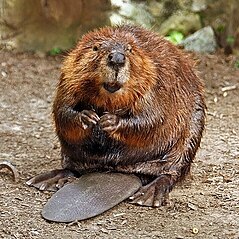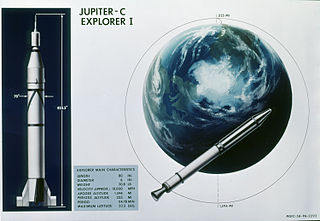We just learned about the Cheetah.
Beavers live in houses called dams that they build in the rivers out of mud and sticks.
They get the wood from chewing on it with their teeth,
which keep growing and growing for their whole life so they don't get worn out from all the wood chewing.
When a beaver is in danger they take their big flat tail and whack it loudly on the water as a warning to other beavers.

(from: wikipedia - north american beaver)






